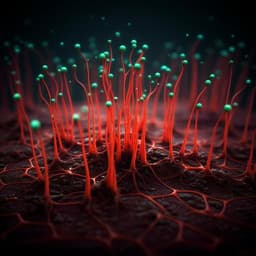
Agriculture
Land conversion to agriculture induces taxonomic homogenization of soil microbial communities globally
Z. Peng, X. Qian, et al.
This groundbreaking research by Ziheng Peng and colleagues unveils the impact of agriculture on local species diversity and soil microbial communities in China. The study reveals that land conversion to croplands leads to significant taxonomic and functional homogenization of soil bacteria, with critical implications for ecosystem services. Discover how agricultural practices are reshaping our soil's microbial landscape.
Related Publications
Explore these studies to deepen your understanding of the subject.







